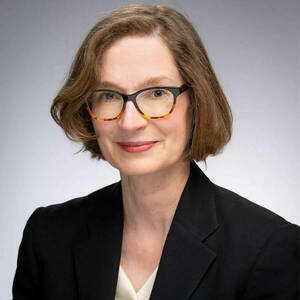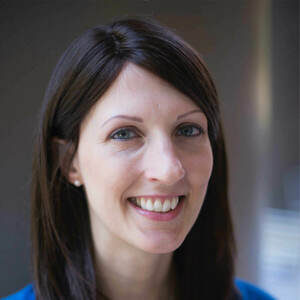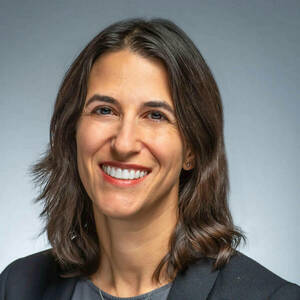Throughout different departments at the University of Notre Dame, faculty and students are engaging in conversations about utilizing feminist methods of study, analyzing how gender affects their discipline, and recognizing female scholars and historical figures who are sometimes overlooked.
Check out three courses offered this semester that explore gender through the lenses of English, history, and gender studies.

Women and Magazines
Taught by Dr. Barbara Green, Director of Gender Studies Program and Professor of English
What do students learn and do in class?
Students consider a wide variety of periodicals—little magazines, suffrage and feminist papers, women's domestic magazines, fashion magazines, and more—as texts worthy of study in their own right. The organizing idea of periodical studies is that, like the larger culture, magazines are complex: they display competing ideas in a variety of modes and forms (text, illustration, advertisement, etc.).
How did you come up with the idea for this course?
I got the opportunity to look at periodicals related to the suffrage movement at the Women's Library in London and was amazed and delighted by their brilliance and complexity. Votes for Women, the organ of the militant Women's Social and Political Union, offered all the things you would expect—editorials and speeches on the campaign for the vote—but also included short fiction, poetry, comics, biographical sketches, book reviews, a fashion page, and more.
What’s your favorite part of the course?
The last decade or two has seen a real increase in digitized versions of rare, hard to find, periodicals...but there is nothing like holding a periodical from an earlier period in your hand, and my favorite moments of the course have occurred in Special Collections at Hesburgh Library. [American History Librarian and Curator] Rachel Bohlmann and others have introduced my students to older and rare periodicals in very exciting sessions where students actually interact with the materials we are studying in a way that reminds us all of the readers who touched, shared, lived with these magazines.
What do students bring to the course?
This course comes out of English and is cross-listed with Gender Studies. What makes it come alive are the various perspectives that students bring to the course from their primary and secondary majors, their minors, and their concentrations—students with expertise in design, business, journalism, art history, literary studies, gender theory, and more have important insights to bring to the table. Periodical studies scholars have said that you need something like a humanities lab to study a magazine, and a Gender Studies/English class offered in the College of Arts and Letters can provide just that.

History of American Feminist Thought
Taught by Dr. Emily Remus, Associate Professor of History
What will students learn and do in the class?
Students learn the historical development of feminist thought in the United States, reaching from the era of the American Revolution to the digital age of the late twentieth century. We explore how the goals and meanings of feminism have changed over time and discuss major turning points in the movement for women’s rights. We approach feminism as an argument, not a received truth, and discuss the ways that feminists have sometimes gotten things wrong.
What’s your favorite part of the course?
I do have a soft spot for the days when we host “historical debates,” where students take on the personas of different authors we’ve read and debate a particular problem. I love the creativity they bring to these activities, and it’s such a pleasure to see them apply what they have learned by bringing different feminist texts into conversation with one another.
Why is it important to offer this class?
Students are increasingly hearing about and encountering feminism in their daily lives. They are hungry for context that will help them make sense of what they are hearing. This course provides that context and allows them to situate the current moment and their own experiences in a longer historical trajectory....I always tell my students on the first day of class that they don’t need to identify as feminist or hold a particular political viewpoint to take this class. Everyone is welcome.

Feminist and Queer Lit Criticism
Taught by Dr. Sara Marcus, Assistant Professor of English
How did you come up with the idea for this course?
I chose to teach this class for a few reasons. First, whenever ideas from feminist and queer criticism have come up in my previous classes here, students have been enthusiastic about discussing them and eager to learn more. Second, feminist and queer critical traditions are key elements in my own research and writing, and in the English department, professors are encouraged to teach courses based on themes that motivate our research. Finally, I wanted to offer a course that was cross-listed with Notre Dame's excellent Gender Studies program so I could encourage interdisciplinary discussions between English majors and students from other departments doing work in Gender Studies.
What will students learn and do in the class?
This is a relatively small (13 students) course, centered on student presentations and participatory discussions. It's really a thrill to be back around a seminar table after a year in socially distanced classrooms! We're spending the first half of the semester learning the history of feminist criticism especially as it has been practiced in the US, from Ida B. Wells and Simone de Beauvoir, to 1970s-era rediscoveries of out-of-print women's texts, to black and third world feminisms, up through contemporary ideas about identity, archives, and the family. After fall break, the course focuses on queer theory and criticism, and we wrap up the semester with a collaborative project in which teams of students will choose, research, and write a reference entry for a key term in feminist and queer literary study.
Why is it important to offer this class?
The relationship of Catholicism to feminism and LGBTQ+ issues is certainly complex. My students came to this class excited for the opportunity to discuss issues and ideas that can sometimes feel controversial on a campus where people hold, and express, a wide range of political views, and I deeply value Notre Dame's commitment to making space for honest intellectual inquiry on these and other important matters. Also, the feminist and queer critical traditions account for some of the most important work in literary and cultural scholarship, and gaining familiarity with these traditions is indispensable for any well-rounded student of literature.
Explore Further:
Gender Studies Major and Minor
More Cool Courses: Two Spring Classes Explore Black Lives Matter Movement, Civil Rights in the U.S.